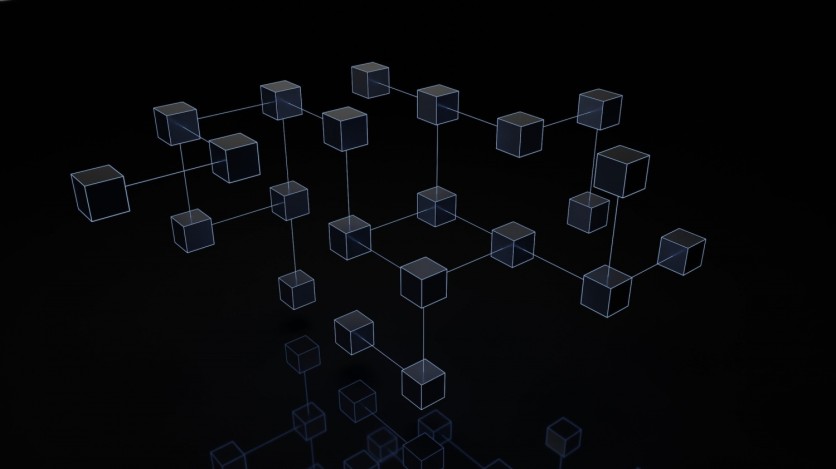
Cryptocurrencies are one of the most popular use cases of blockchain technology. However, blockchain is more than just Bitcoin, Ethereum, and other cryptos.
This decentralized ledger technology is engineered to document transactions across multiple computers and ensures records cannot be retroactively altered without network consensus. Its robust and secure nature has enabled its adoption in various applications and industries over the years.
So, let's look at real-world use cases of this revolutionary but yet-to-mature technology.
Payments
By enabling the creation of a tamper-proof log of sensitive activity efficiently and securely, blockchain serves as a solid foundation for cross-border payments and money transfers. Reducing intermediaries in transactions not only fosters increased efficiency and lowers payment costs but also automates the entire process, making it an attractive technology for financial institutions.
In 2018, Banco Santander recognized the potential of blockchain and launched the world's first blockchain-based money transfer service. More recently, JPMorgan Chase & Co. have also adopted blockchain technology, estimating savings of $20 million in payments and introducing new functionalities like the ability to tokenize money market fund shares. These developments signify their initial exploration into leveraging blockchain for creating digital deposit tokens to accelerate cross-border payments and settlements.
Real-Time Communications
Media companies are already adopting blockchain technology not just to reduce costs but also to eliminate fraud and even protect the Intellectual Property (IP) rights of a piece of content. Not to mention, artists and musicians were among the first to recognize the potential of NFTs for increasing engagement with fans and as a new avenue for profit generation.
Blockchain can further help with secure communication and integrity of data. Huddle01 is one such project illustrating the practical application of blockchain in real-time communications, striving to make communication more reliable, efficient, and secure. Governed not by any centralized entities but by the people, it addresses concerns raised against centralized platforms such as Zoom, allowing users to communicate and control their data without intermediaries, ensuring user privacy and secure communication.
Started in 2019 at the ETHGlobal Hackathon, Huddle01 has scaled to launch its Video Meeting dApp and Communication Infrastructure and is now building the 1st open dRTC Network that any app or RTC client can leverage. Huddle01 also has a plug-and-play API for builders to power audio/video communications in their product with just a few lines of code. The platform aims to connect 100 million people over Huddle01 by 2026.
Hence, in this evolving paradigm, where data is immensely valuable but often controlled by centralized organizations such as Meta (previously Facebook), X (previously Twitter), and Google, blockchain heralds a shift, giving users control over their data. And in this decentralized landscape, users can not just own but also monetize their data securely, as long as decryption keys are secure.
Supply Chain Management
Blockchain's immutable ledger is suited for real-time tracking of goods, providing ease of communication between parties and transparency from sourcing to consumption. It is instrumental in the retail fashion and luxury industry by improving data management tools and reducing the risk of counterfeiting.
Real Estate
An average person moves nearly 12 times in their lifetime, a frequent and often stressful endeavor due to the substantial paperwork involved in real estate transactions, highlighting an important area for blockchain application.
Blockchain digitizes financial information ownership verification and transfer of deeds and titles to new owners. This speeds up transactions and reduces paperwork while providing transparency throughout the entire selling and purchasing process.
In addition to all this, the digitization of assets and financial instruments enhances the fractionalization of ownership, expands access to global markets, and democratizes access to investment opportunities in real estate.
Identity Management
With everything going digital, personal data security has been gaining increasing traction. This is where a blockchain-based digital identity system can provide a unified, tamper-proof, and interoperable infrastructure that protects against theft and gives people greater data sovereignty. The technology allows validation of credentials through proofs and signatures without requiring the information to be shared, thereby protecting user identity.
Today, much of our information is at risk of data breaches and privacy loss. Here, the use of public and private keys in blockchain minimizes the risks of hackers revealing personal information.
Concluding Thoughts
So, as we saw, blockchain technology has many more potential use cases beyond just serving as the underlying tech for Bitcoin and other crypto assets, ranging from finance, supply, healthcare, and other industries. As blockchain evolves, we will see companies across the world implement the technology for a range of applications and more use cases to emerge in a variety of market segments and industries.




